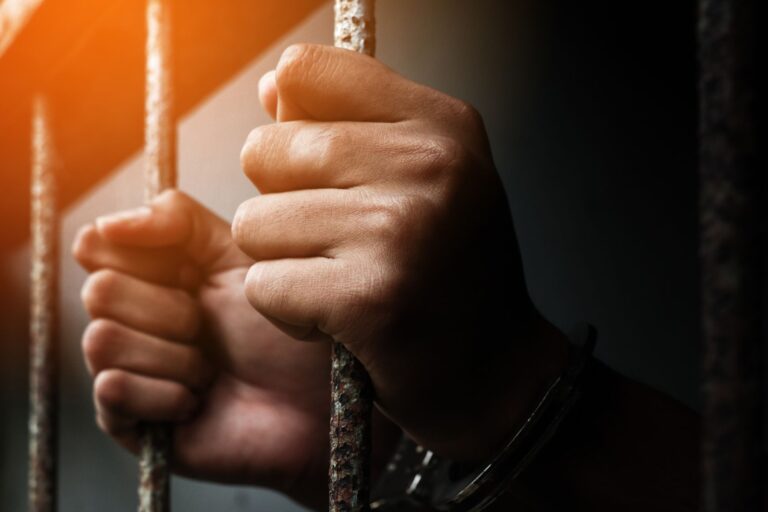When people involved with illicit drugs have their first run-in with the law, they enter the “system” that involves policemen, jails, courts, and correctional and probation officers. However, the people they usually don’t encounter are drug counselors and doctors who specialize in addiction. Considering these individuals are dealing with drug-related charges, one would think that addressing the underlying addiction that is leading them to these behaviors would potentially be addressed. Surprisingly, it’s very rare that state jails or prisons ever offer inmates any drug treatment either before or during their sentence.
America has the largest incarceration rate in the world with 2.2 million adults incarcerated in local, state, and federal jails and prisons. Of the 2.2 million people incarcerated, about 300,000 have a history of heroin use, with 80,000 inmates who say they are dependent on narcotics. Even with these large statistics, the majority of prisons and jails do not provide evidence-based treatment that is available to people outside of the prison system.
According to the New York Times, out of 5,100 jails and prisons in America, fewer than 30 offered people addicted to opioid the most proven method of recovery. With so many inmates being revolved in and out of the “system” for drug offenses, about 95% return to drug use upon release, and 60-80% return to prison with another drug-related crime within a year. This cycle of people revolving in and out of the prison system is called “recidivism”. Much like relapse during recovery, recidivism is the return to jail for drug-related charges upon the previous release. For people who have an addiction, these rates tend to be very high due to the nature of chemical dependency on a drug.
MAT, or Medical-Assisted Treatment, in Prison
MAT is the use of FDA-approved medication, therapy, and counseling for the treatment of opioid use disorders. The three most commonly used medications to treat opioid addiction are methadone, naltrexone, and buprenorphine. Each of these medicines help people who are chemically dependent on opioids get through the physical and psychological pain of withdrawal symptoms while slowly lowering their dependence until they can fully stop use. Because of the current opioid epidemic in America, 68% of inmates are experiencing opioid dependence while only 16.9% are receiving treatment while incarcerated.
Studies show that the medications used during MAT help decrease opioid use, overdose, and drug-related criminal activity when administered regularly. These treatments also help inmates once they are released and increase their ability to function in society without relapse and returning to crime. It’s been proven that “detoxing” in prison alone is not enough to prevent repeat drug offenders. In fact, a Washington State study found that the risk of death from an overdose was 129 times higher in the first two weeks after release from prison compared to the general population. Using MAT can decrease those instances of death by 75%.
While medications can help with the chemical side of addiction, behavioral therapy and counseling are very important parts of MAT. Treatment alone is not enough to prevent future misuse and recidivism. A NIDA study found that over 97% of inmates who received methadone treatment while incarcerated continued to seek treatment after .
Myths about MAT
Even with overwhelming evidence supporting the use of MAT programs in prisons around America, there is still some resistance to the idea despite the World Health Organization recommending that all prisons make methadone and buprenorphine available for treatment, as well as naltrexone for relapse prevention, some falsely believe that using these medicines for people in prison is substituting one addiction for another. This is untrue, however. When a person is being treated for opioid addiction, the dosage of treatment medication will not get them “high.” It simply reduces the pain of withdrawal and the cravings that go along with the process. These medications are used in a tapering method, slowly lowering the patient’s dosage until they can wean off.
MAT medications also help restore the addicted brain’s circuits and functions that are affected by addiction. Since addiction changes brain chemistry, simply abstaining from drugs, going through painful withdrawal, and “quitting cold turkey” may not help someone get over their addiction. Without the proper medicines and behavioral therapies, people who have substance use disorders will likely not achieve long-lasting recovery, thus continuing the cycle of those who are incarcerated for drug-related crimes.
MAT Can Change the US Prison System
Things need to change in our prison system because the alarmingly high rates of addiction, incarceration, and recidivism are all interrelated. With much-needed improvements being made to drug courts, we can find a happy medium between community safety and public health. Drug courts keep nonviolent people who are currently addicted to drugs in treatment before they are incarcerated. Provided that they test negative for drugs, and that they lead productive lives, they are under judicial supervision. With random drug tests and a counselor whose job is similar to that of a probation officer, they are monitored closely to ensure they are fulfilling their requirements. Programs through drug courts could significantly reduce the incarceration rates of those with addiction, and also help them achieve long-lasting recovery. Instead of punishing people with a disease, it’s much more humane to treat the root cause of the issue- drugs.
It will take some time before the American court system comes around to the idea of MAT for all jails and prisons, as well as the use of drug courts for non-violent drug offenders, but this is a cause that is very important. Sick people should not be criminalized and locked up without medical and psychological help. Once we start treating addiction as the disease it is and using science and evidence-based solutions to decrease the number of people with addiction in our prison systems, we will be able to tackle the massive opioid epidemic in this country.

